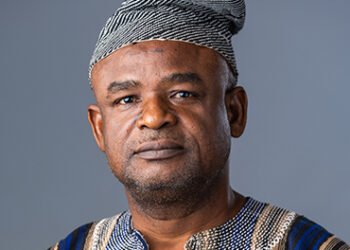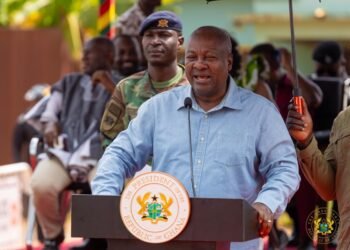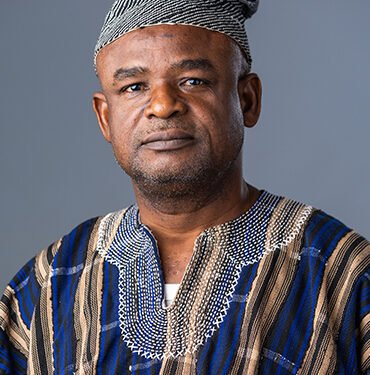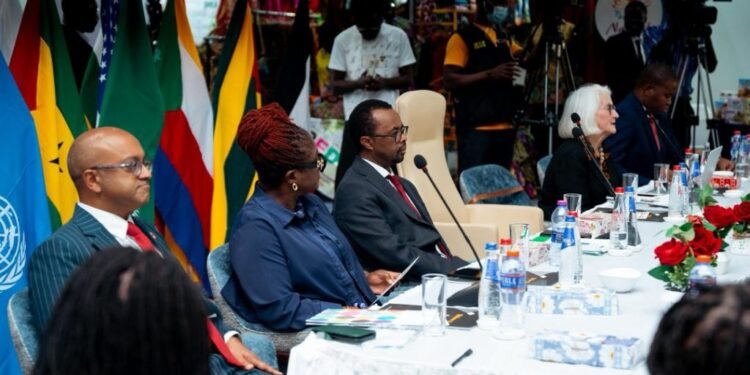A member of the Tax Justice Coalition, Bernard Anaba, has called for the G20 to support government’s effort in attaining debt cancellation.
According to him, it is the only option which can largely translate into a reduction in government’s debt level. He revealed that anything other than that may not return the country to a sustainable level.
“So, the government has made a decision to restructure it’s debt… We think that the government should be supported by the G20 both politically and financially to be able to hold on to its default until the private creditors are able to come on board… It is only debt cancellation that can reduce our debt level to a stage at which the government is looking for; which is about 55% [GDP] ratio and about 18% of debt servicing revenue, which means that that is what the government should be negotiating for.”
Bernard Anaba
Mr Anaba indicated that finance minister, Ken Ofori-Atta’s call for debt re-profiling may not be enough to return the country to a sustainable level. This, he explained, will remain crucial as the government intends going in for more loans from the IMF, which means it is going to pile on loans years down the line which it may not be able to repay.
“… We are going to return back to the same problem that we are facing, unless we seek for significant cancellation of our debt so that we will be able to in turn get to sustainable level.”
Bernard Anaba
The member of the Tax Justice Coalition reckoned that the cancellation of debt is “feasible” as it has been done before. He recounted that in the year 2000 when the country implemented the HIPC initiative, there was a “negotiation looking at the [debt level] and the only way forward was to cancel most of the debt”. This, he noted, allows most of the Africans countries to return to a sustainable level.
Creditors urged to accept cancellation of Ghana’s debt
Mr Anaba highlighted that creditors to the country will likely not lose out if government seeks cancellation of its debt. He emphasized that since Ghana is considered a high risk country, it can default on it’s loans since the creditors are already making huge profits in terms of interest rates.
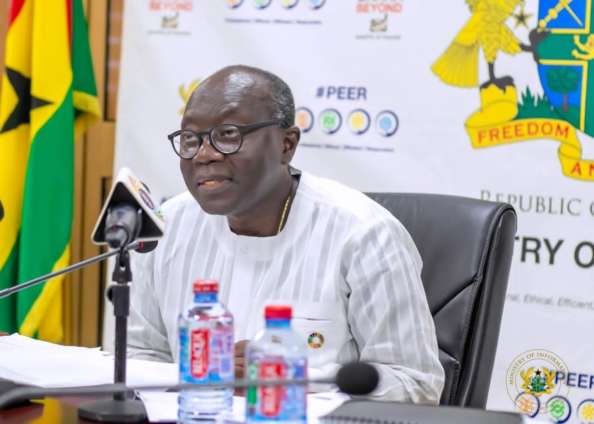
“If you look at the risk levels in terms of the rate we pay off our debt, we pay an average of 7.5% for our debt because we are considered as high risk of default. So, most creditor make a huge profit off our backs, so they are also obligated to restructure our debt in terms of cancelling our debt.”
Bernard Anaba
Furthermore, Mr Anaba stated that there is the need for creditors to re-negotiate with the government and the only way government can also achieve that is to sustain the default, suspend the debt service repayment and that will force creditors back to negotiation to re-consider the way forward.
“We are in a very difficult situation and we expect to get back to the market to transact business and the only way we can get back to the market is for our business partners to consider our situation, otherwise, we will not be there for them to make business with us. So, it is a fair call for them to consider our debt levels and what we are saying is that just re-profiling our debt is just kicking the countdown the line and we are going to return back to this same crisis…”
Bernard Anaba
Meanwhile, more than two dozen aid and campaign groups have called for international creditors to cancel a large portion of Ghana’s debts as it struggles to contend with an economic crisis.
Signatories to a letter, which included Oxfam, Christian Aid, Caritas Ghana, Debt Justice and ActionAid, noted that the key challenge was to get private lenders to agree to a significant debt cancellation.
It will be recalled that Ghana launched a domestic debt swap plan at the start of December last year, days before clinching a staff-level agreement with the International Monetary Fund (IMF) for a $3 billion rescue package.
The IMF has indicated that its board will approve the deal only if Ghana undergoes comprehensive debt restructuring. The deadline to register for what is dubbed the ‘Domestic Debt Exchange’ has been extended three times, as authorities struggle to entice bondholders to participate in the programme.
READ ALSO: NDC Presidential Race: John Mahama Should Pull Out- Kojo Bonsu




